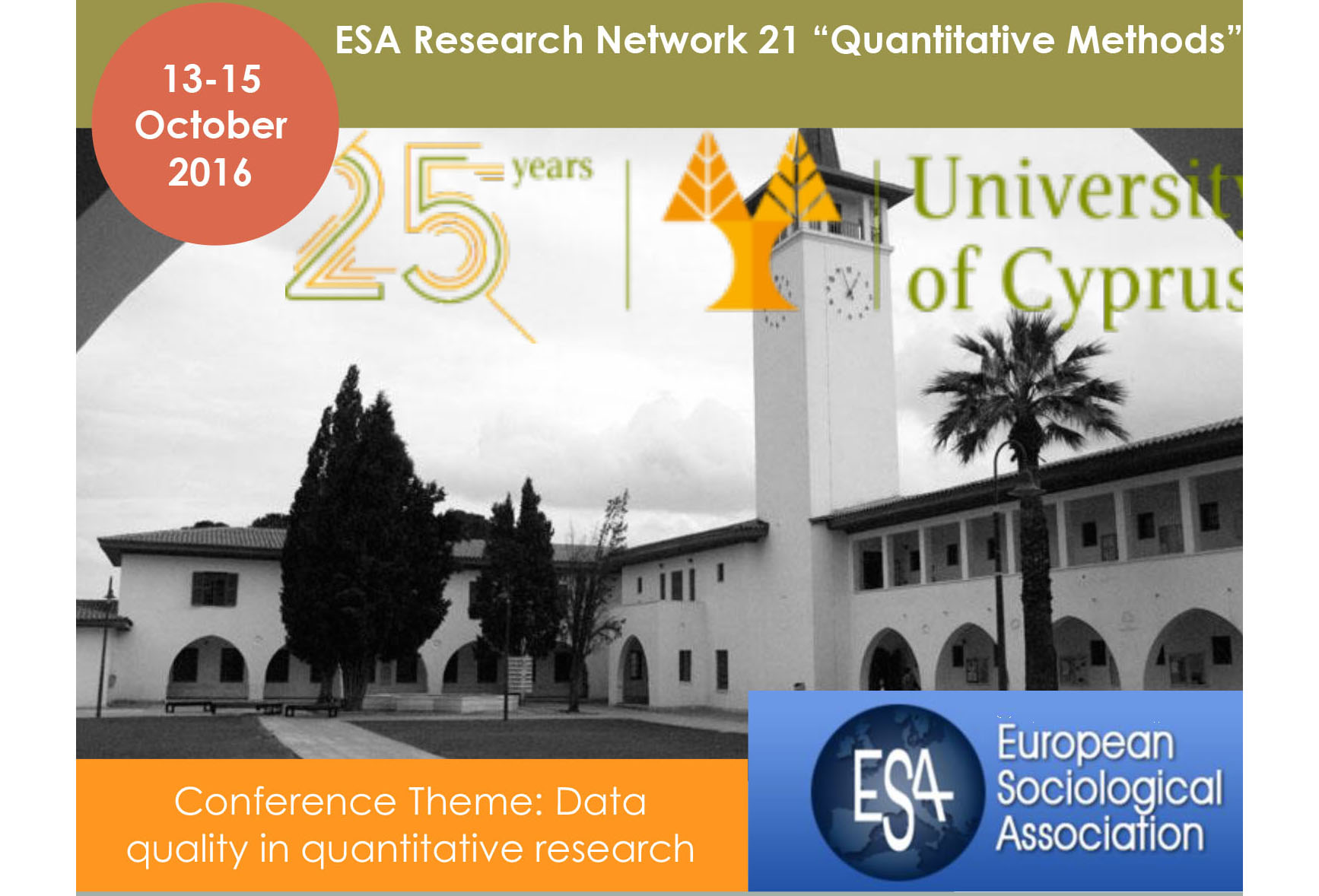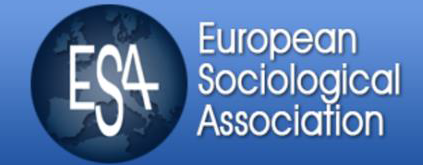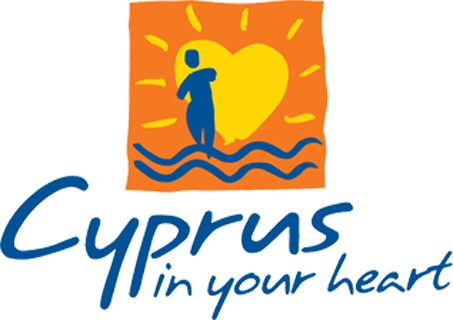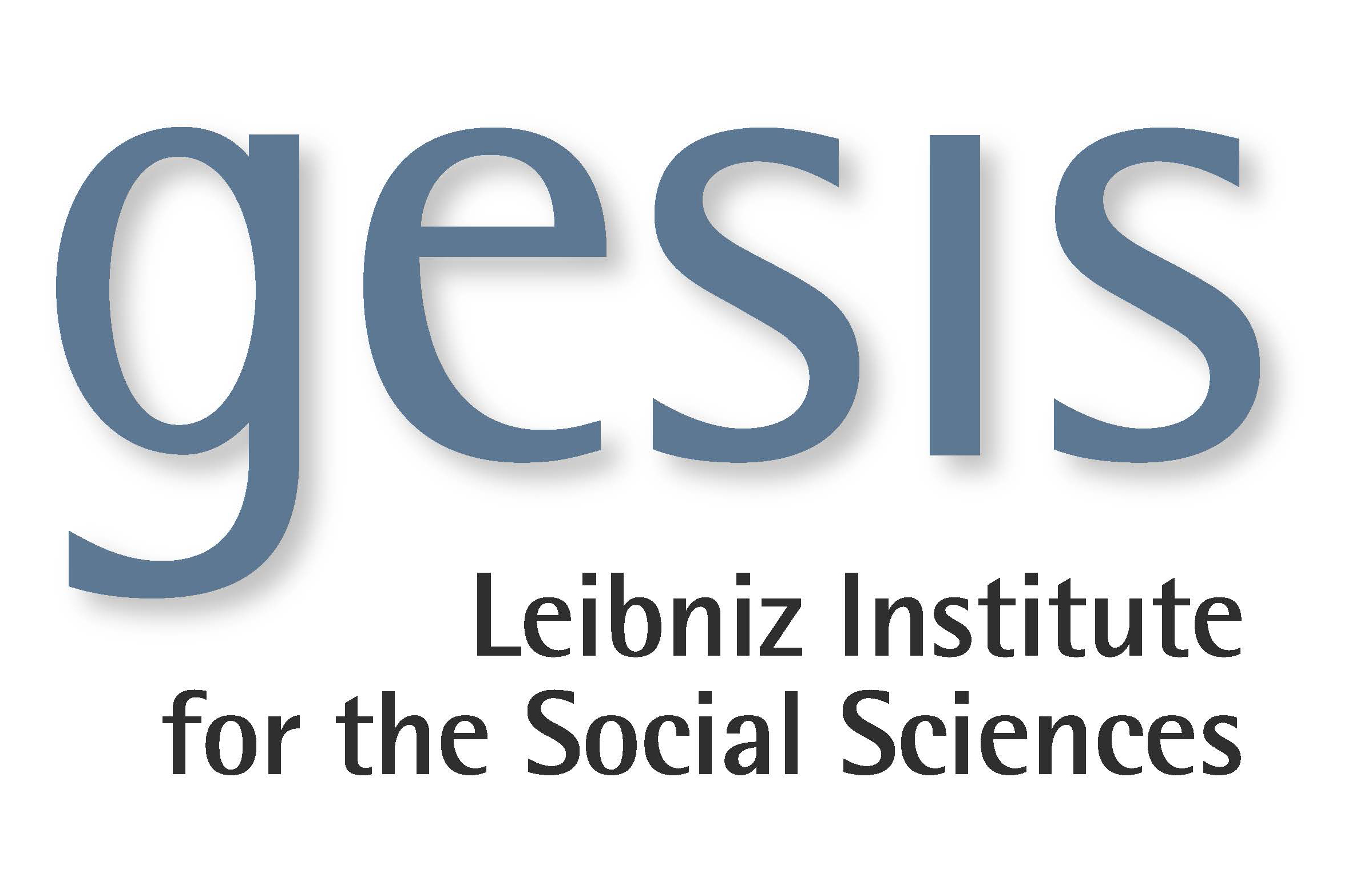RN21- 2016
Midterm Conference of RN 21: Quantitative Methods
Conference Theme: Data quality in quantitative research
Welcome MessageIt gives me great pleasure to welcome you to the University of Cyprus for the 2016 European Sociological Association Research Network 21 on Quantitative Methods. It is very exciting for us to have you here visiting both the University and Nicosia. As you will see from the programme, we have around 47 academic sessions on offer covering a wide range of thematic areas. We also have an expert workshop on SEM (Structural Equation Modelling) and two keynote lectures. The conference is housed within the University of Cyprus Campus which we are certain you will like. Venturing beyond the University, the city of Nicosia is rich in history, culture, attractions, shopping and food and drink. There is plenty to do, visit and see within the city. We hope you enjoy the conference and your time with us here in Nicosia. 
Dr. Iasonas Lamprianou |
Important DatesSession Proposal / Abstract submission: 1st of January, 2016 – February 15th, 2016 |
Local OrganizerIasonas Lamprianou CoordinatorsWolfgang Aschauer | University of Salzburg, Austria |
Scientific Board
|
Thematics Focus
The ESA Research Network 21 "Quantitative Methods" hereby announces its midterm conference dealing with "Data quality in quantitative research".
In the recent decades we have seen major efforts in establishing a European framework of indicators trying to monitor social change and societal developments all over Europe. Those "official statistics" are often generated for public use and consist of a wide variety of indicators where major progress was achieved to enable international comparisons. Besides those databases, an increasing number of international survey programs have been established within Europe (such as the Eurobarometer, the European Social Survey, the European Value Study) and beyond (such as the International Social Survey Program, the World Value Survey etc.) to provide public opinion data from citizens all over the world.
For every database and for every survey there are multidimensional requirements to guarantee a high level of quality. Statistical estimates should be as accurate as possible to enable clear insights of the empirical reality in every nation. The results should be available within tight-fitting time points to allow a close monitoring of societal change. The comparability of indicators, the equivalence of constructs, the relevance of concepts, the clarity of definitions, the coherence of data sources and the completeness of data are further issues which attract attention in research. In general, available datasets are designed by groups of experts but usually the process of gathering the data is contracted out to national institutes. Constraints in data quality thus always refer to the whole data gathering process and may be highly different between countries.
Specific Thematic Areas
We invite session proposals and individual abstracts dealing with various aspects influencing data quality. We are particularly interested in comparative studies as well as in single case studies to get an impression how the accuracy of data is threatened by various challenges. Possible themes include but are not limited to:
- Questionnaire development: e.g. issues of translation and comparability
- Specification of concepts for research: suitability and equivalence
- Sampling frame: deviances with regard to the target population
- Sampling strategy: best practice examples and national differences to achieve representative results
- Nonresponse: strategies to increase response rates and to prevent item-nonresponse
- Survey modes: different field work standards in various countries
- Interviewer effects: e.g. partly faked and faked interviews
- Measurement errors due to respondents (e.g. response styles)
- Quality control procedures: inadequate institutional standards including unethical practices
- Weighting and coding issues (e.g. organizing data for public use)
Instructions for Authors
Please submit:
- Either an abstract of 300 words
- Or a session proposal (description of the session, 300 words including abstracts of planned speakers, 300 words)
Please do not forget to include the name(s) of the author(s), his/her/their affiliation(s) and E-mail address(es).
Participants will be notified regarding acceptance the latest by the end of March.
Postcard


RN21- 2016
Location
Nicosia, CyprusDates
13 – 15 Oct, 2016Venue
University of Cyprus | New CampusContact
For questions and expression
of interest, please contact:
Co-ordinators
For local arrangements please contact:
P: +357-22-591900






